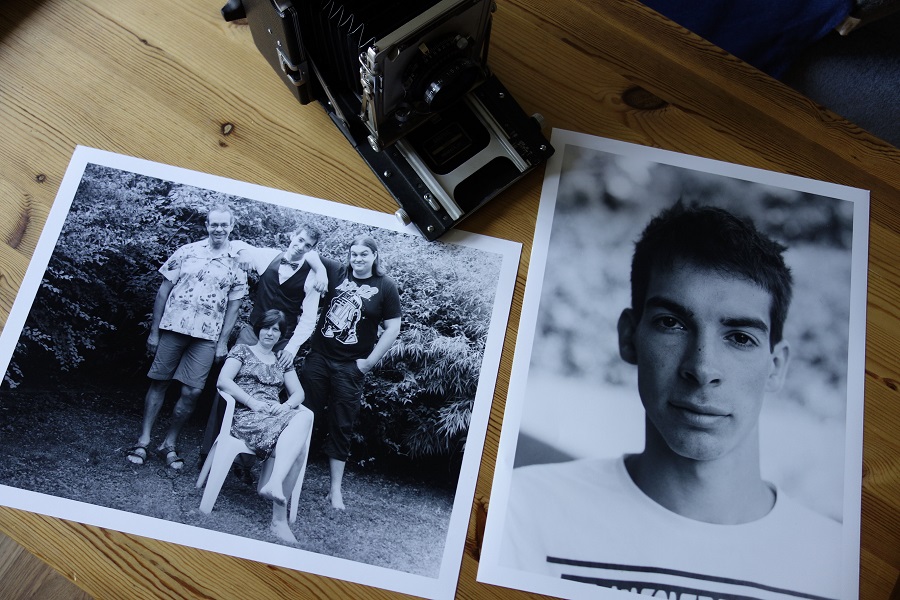Sandra, I've read about this technique but so far I've always do straight (one pass) lith-print.
Would you expand on it more and maybe show us some examples? Which paper have you tried, which developers?
Hi Will,
Please excuse my late answer, I just did not see your question before
😱
If you wish to do a 2nd pass lith, you would start with exposing the paper ca. 50 % more than a normal print would require, as the process tends to lighten your print and reduce the contrast somewhat. Then you develop it normally in your standard developer, stop, fix, wash well.
Then you can do the 2nd pass lith. I work under red darkroom safelight during the whole procedure, which is:
- Bleach the paper in copper bleach. Ca. 30-40 seconds.
- Wash 10 minutes minimum, in the meantime:
- Prepare the lith bath; here you can experiment a little. Start with
3 ml Part A, 3 ml Part B, 500 ml water (warm water, around 35-40 ° Celsius)
- Put the print in a tray with warm water (ca. 40 ° Celsius/104 Fahrenheit), to warm it up, then
- Put the print in the warm lith developer (ca. 40 ° Celsius/104 Fahrenheit) to redevelop. Experiment with the correct moment to snatch the print
- Stop and fix as usual
- The print will lighten somewhat when in the fix; it will get darker again when dry.
- Wash as usual
You can stop here or tone the print in Se, Au, sepia or whatever.
If you do not like the result, you can repeat the process (edit:
before toning, of course), but I found that the contrast suffers and the gelatine will swell even more. I will have to experiment further with this.
I tried 2nd pass lith with Fomabrom Variant 111 and Adox Variotone. You can find examples at my ipernity account. I don't know how to include the images here (this was easier with flickr), but here is a link to
Fomabrom Variant 111:
http://www.ipernity.com/doc/sandra-wittmann/17201283
and this one is Variotone:
http://www.ipernity.com/doc/sandra-wittmann/17201415
Moersch Easy Lith gives other colors than Rollei Superlith. Both are beautiful.
🙂
You may want to read Wolfgang Moersch's information here:
http://www.ipernity.com/blog/wolfgang.moersch/697765
More examples on his website:
http://www.moersch-photochemie.de/content/shop/lith/97/lith_umentwicklung/lang:en
And you may also wish to subscribe to Tim Rudman's newsletter:
http://www.timrudman.com/mailing_list
His 2nd pass lith prints are here:
http://www.timrudman.com/printing-processes/2nd-pass-lith/1
I hope that I was able to answer your question a little bit. Experiment and have fun!!
🙂
Best regards,
Sandra






